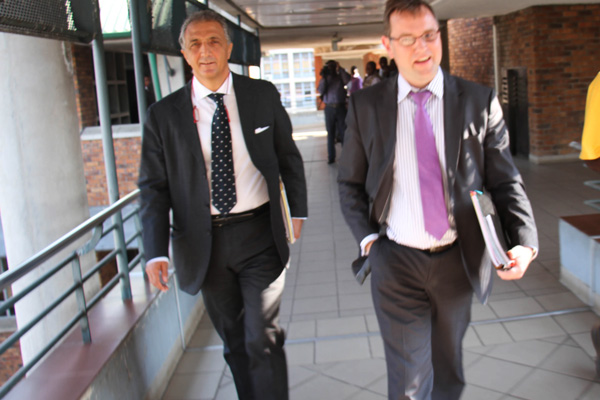
The International Monetary Fund (IMF) says Zimbabwe needs to create a level playing field for private sector-led growth because just “dumping” money into the country will not resuscitate the ailing economy.
BY TATIRA ZWINOIRA
IMF resident representative to Zimbabwe, Christian Beddies told delegates at a meeting on Zimbabwe’s re-engagement with the international community in Harare on Friday that a level playing field and a stable micro-economic environment were needed to create an environment conducive for investment.
“Dumping money into a country does not solve anything. If we do give money to a country, it is a bit like anaesthesia in a surgery; we are trying to mitigate the pain of structural adjustment by providing some financing.
The only way for Zimbabwe to grow is to create an enabling environment and create a level playing field for private sector growth,” said Beddies.

- Chamisa under fire over US$120K donation
- Mavhunga puts DeMbare into Chibuku quarterfinals
- Pension funds bet on Cabora Bassa oilfields
- Councils defy govt fire tender directive
Keep Reading
“So, what do we need going forward? A level playing field, a stable micro-economic environment that is conducive for investment, private sector-led growth and ultimately job creation. [What is needed is] a Zimbabwe that promotes equal opportunities for all economic participants and participation by all.”
Beddies was a panellist alongside British Ambassador to Zimbabwe Catriona Laing and Ashok Chakravarti, senior advisor in the USAID strategic economic research and analysis programme and lecturer in the economics department at the University of Zimbabwe.
The event was hosted by The Space, an international platform convened by young people to provide solutions and opportunities for growth and thought process to current and future challenges.
Chakravatri said it was government policy which was going to determine the direction the country was taking and not the contribution from donors.
“Economic theory and practice the world over has shown that the focus was too much on finance and money, which is not what development and economic building is all about. This is a well-established fact; if a country wants to develop, you have got to have good policies and a good enabling environment,” said Chakravatri.
He said: “Aid which comes into a country with bad polices and a bad environment has no impact at all”.
“I believe that the international community needs to engage this government at policy level,” he said.
“The government is trying to do something about economic governance in this country at a certain level, but it is not enough.”
Laing said the country had a bad international image and the British government would move to having: “sensible and in-depth policy dialogue” going forward.
She refuted claims by government that sanctions imposed by the British government were responsible for the unfriendly investment climate on trade.
“On the trade investment side, there has never been or will ever be sanctions on Zimbabwe. In recognition, we did not want to hold back economic development to this country,” said Laing.
“Essentially, all we want is for people to be able to use the assets they have, to borrow against those assets and return Zimbabwe to a point where it can achieve its full potential.”
Zimbabwe is re-engaging creditors in a bid to normalise relations. The country’s public and publicly-guaranteed debt stands at $8,4 billion, and has arrears of $1,8 billion to the IMF, World Bank and the African Development Bank.
Reserve Bank governor John Mangudya is set to visit three European capitals to seek support for the country’s debt strategy ahead of the IMF/World Bank annual meetings in Lima, Peru, next month. The strategy will be tabled before the preferred status creditors.











